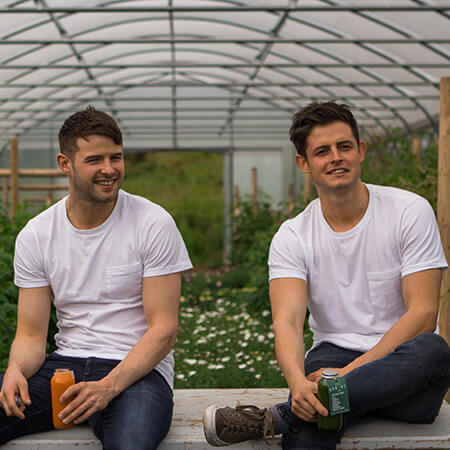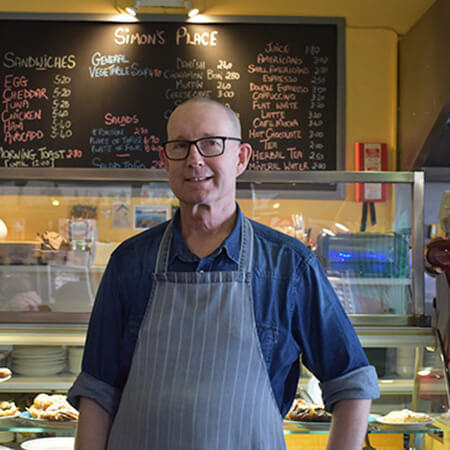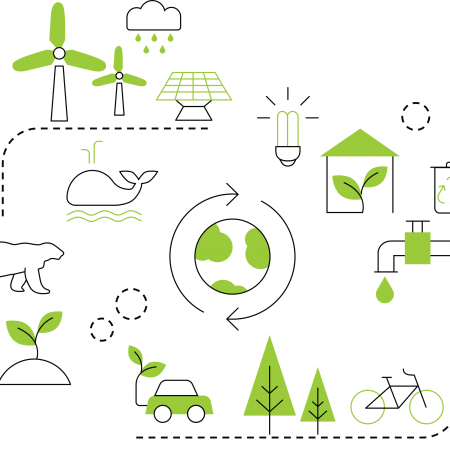Sustainable, ethical clothing designed in Dublin
Grown Clothing is a Dublin startup that prints beautiful, simple designs on ethically-sourced, environmentally-friendly shirts and t-shirts.
Its origins lie in conversations between three friends as they journeyed back and forth between Dublin and the West of Ireland, on swimming, surfing and scuba-diving trips.
What inspired this sustainable startup?
The ocean-loving friends were Neil McCabe, Stephen O’Reilly and Damien Bligh. They often noticed rubbish in the water and on the beaches they explored.
This made them think about the ecological impact of plastics and modern fabrics – and how we produce and consume everything from food and drink to coffee and clothes.
That got them researching, finding out how things are made, how supply chains work and what happens once we’re finished with something.
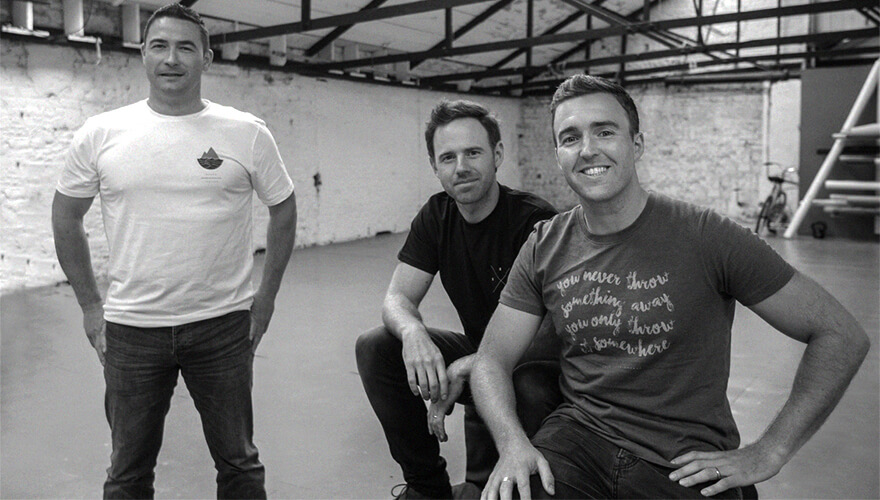
Neill McCabe, Damien Bligh and Stephen O’Reilly of Grown Clothing.
What they found was mostly bad news. Take clothes for example. Each item of clothing made of polyester releases up to 70,000 plastic microparticles into the environment.
Billions of these end up in the sea and ocean where they are consumed by plankton and tiny fish. They gradually move up the food chain – into crustaceans, larger fish, and then, ultimately, into us.
Unfortunately, the bad news isn’t restricted to microparticles. Vast quantities of larger items swirl around the oceans too – for example, plastic containers that originally contained soap, shampoo, conditioner, soft drinks or just drinking water.
How much is the worker who stitched this getting paid?
“Why don’t we have public drinking fountains, like other cities?” the friends wondered. “Or at the very least, water refill stations?”
At our current rate of pollution, O’Reilly says: “By the year 2050, there’ll be more plastic rubbish (by weight) than fish in our seas and oceans”. It is a disgusting thought, but we are killing ever more marine life by the minute.
Taking action and staying through to their principles
O’Reilly has a background in advertising. With his knack for graphic design, he was often asked to make t-shirts for pals in the surf community. However, when he looked at how most clothes were made, he felt he couldn’t do it.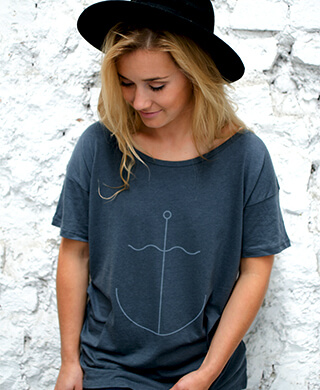
Cotton is often produced using synthetic fertilisers that poison soil. Or they could contain toxic dyes or come from sweatshops that exploit children or the poor. None of which is ethical.
Two horrific factory fires in Bangladesh in 2012 and 2016 really reinforced his views too.
If cotton is bad – and, generally speaking, it is – then synthetic fabrics are even worse, because they release microfibres into the environment.
As for fair wages, as O’Reilly says, if you are paying €5 for a t-shirt, you should ask yourself: “How much is the worker who stitched this getting paid?”
All this made them want to take action and the result was their brand of sea-themed designs, marketed under the name Grown Clothing.
A triple threat team
All three friends had useful skills. O’Reilly was able to design logos and images – if they could source an ethical material to work with. Damien Bligh knew all about the business of retail fashion, having worked for brands like Billabong and Quiksilver.
Neil McCabe, meanwhile, was a distinguished environmental activist. Like the other two men, as well as being a director of Grown Clothing, McCabe also maintained his full-time job – as a firefighter. It was McCabe who started the ball rolling on what became the world’s first carbon-neutral fire station in Kilbarrack.
That project started with battery recycling before growing into other areas, like how the firemen commuted and the type of paint used on the station. Now, it includes every area of activity.
By the year 2050, there’ll be more plastic rubbish… than fish in our seas and oceans.
The fire station installed wind and solar units for green energy, as well as a system for rainwater harvesting – very useful in the firefighting game.
McCabe even delivered a TedX talk on how he helped change the culture at the station. So it’s no surprise that he became Grown’s Green Director.
He devised the company’s rigorous Green Action plan and he does the all-important ‘green audit’ for their business activities. This ensures their products and activities always do more good than harm. However, there’s a lot to building a sustainable clothing brand, while also learning the ins and out of starting a business..
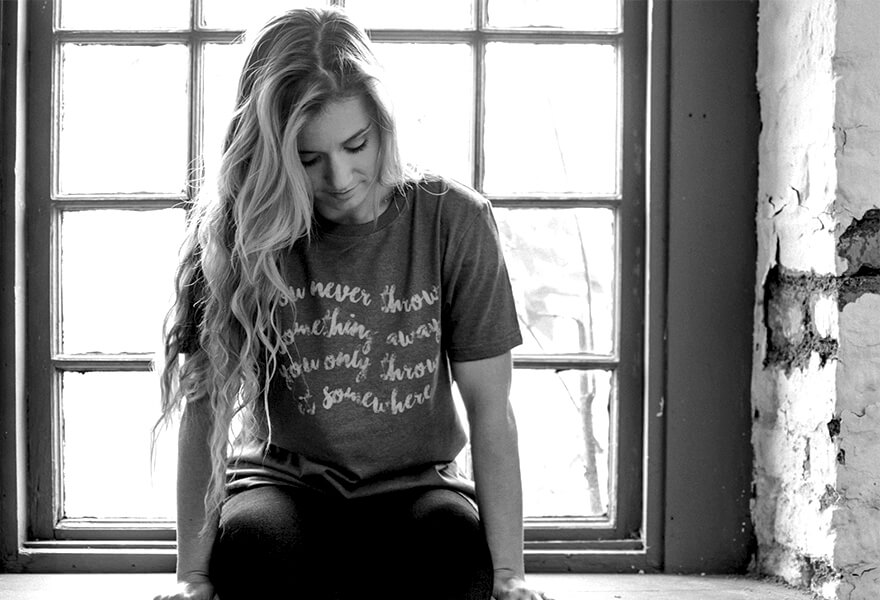
How Grown stays green despite the challenges
The audit process starts, of course, with the fabric they use in their t-shirts and with who stitches them. Cotton uses a vast amount of land and water, so the three friends considered using bamboo – a durable, breathable material.
However, it transpired that the chemicals used to make fabric from bamboo are bad for the environment too. The fabric ultimately selected instead is called Tencel – or Lyocell. This is a fibre made from the cellulose found in wood pulp.
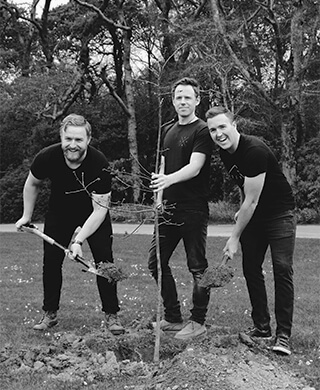 Crucially, Tencel is produced on a ‘closed-loop system’, which means that 99% of the chemicals and solvents used in the process can be recovered and recycled.
Crucially, Tencel is produced on a ‘closed-loop system’, which means that 99% of the chemicals and solvents used in the process can be recovered and recycled.
This minimises both waste and emissions. Tencel also uses up less land and water than cotton.
The next decision was where the clothes would be made.
These days production is always in the developing world but, after hours of research, the Dublin trio found an innovative firm in India called the Continental Clothing Company. It specialises in ethical and eco-friendly clothes.
The company is a pioneer in this area and has worked with both the Environmental Justice Foundation and the Pesticide Action Network for years. In 2008, it even became the first company to globally monitor its carbon footprint.
CCC also ensures all the fibres in its fabrics are fully traceable. So that’s where Grown Clothing sources all their blank shirts and t-shirts. They then add their own designs, drawn up by O’Reilly, right here in Dublin.
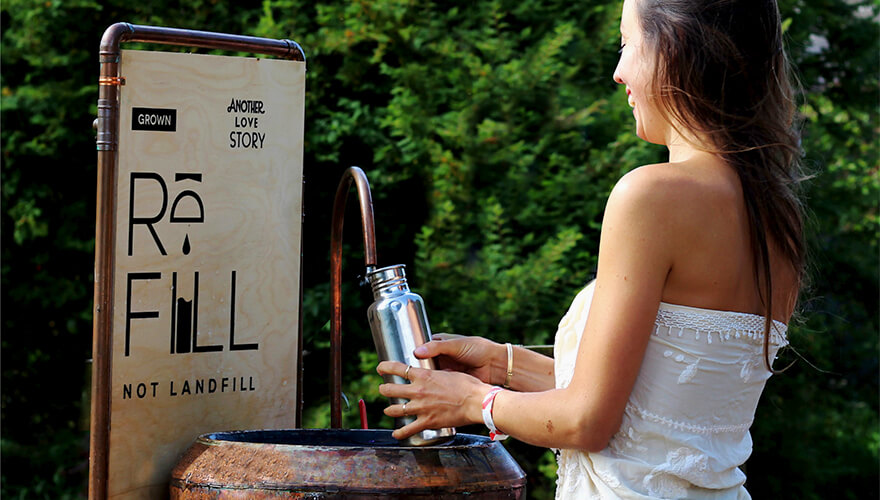
Most of Grown Clothing’s sales are online and t-shirts are priced at around €35 – more than your average tee, but this ensures things are done ethically and sustainably every step of the way.
Because they’re made of Tencel, Grown clothes also last longer than cotton, so you’ll get more use out of them too.
Serving communities with tees and trees
In India, the money Grown pays goes towards schools, health clinics and ensuring that the workers there get a decent wage. The benefits aren’t just felt in India either.
Here in Ireland, the guys from Grow Clothing participate in talks and demonstrations, provide water refills at festivals and organise beach clean-ups. One of their slogans is: “re-fill, not landfill”.
To offset any carbon footprint that might be left, the startup also plants one tree for every t-shirt sold. 700 indigenous Irish trees – mostly whitethorn, alder and Irish oak – were planted in Clare, for example.
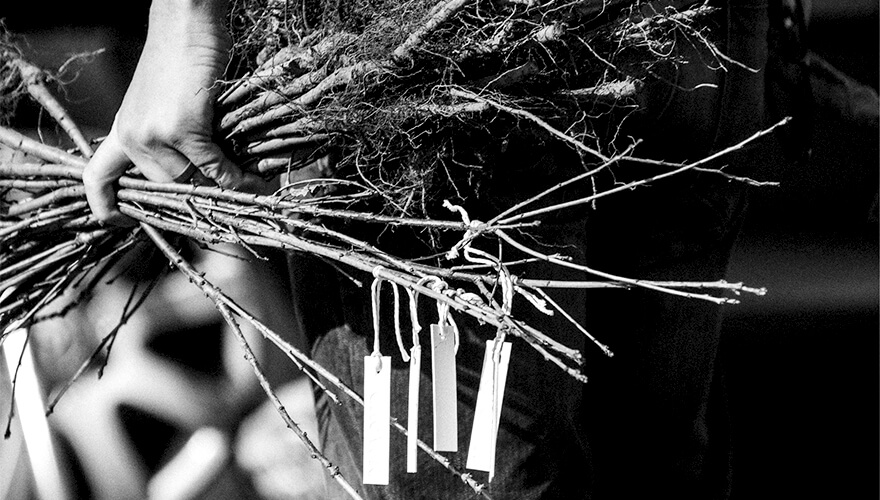
This was such a success that Grown Clothing has now branched out into selling trees. Their latest endeavour Grown Forest allows you to purchase a tree and then they’ll plant it for you.
It aims to plant 300,000 trees by 2030, restoring native woodlands around the country and protecting biodiversity in the process.
Future growth for Grown
The three founders at Grown Clothing acknowledge the help they’ve received from mentors like Rosie O’Reilly, who founded Irish label We are Islanders, and the sustainable fashion movement Re-Dress.
They’re looking forward to future collaborations too. They’ve already teamed up with tons of planting partners as part of Grown Forest and they worked with artists to turn detritus collected at a Kerry beach into works of art.
Grown Clothing has definitely gone from strength to strength and is stretching its reach far beyond ethical and sustainable clothing. So keep your eye on this inspirational startup. It’s likely to make even bigger waves in the years to come.
To learn more about Grown Clothing or check out their designs, visit the Grown web store.

